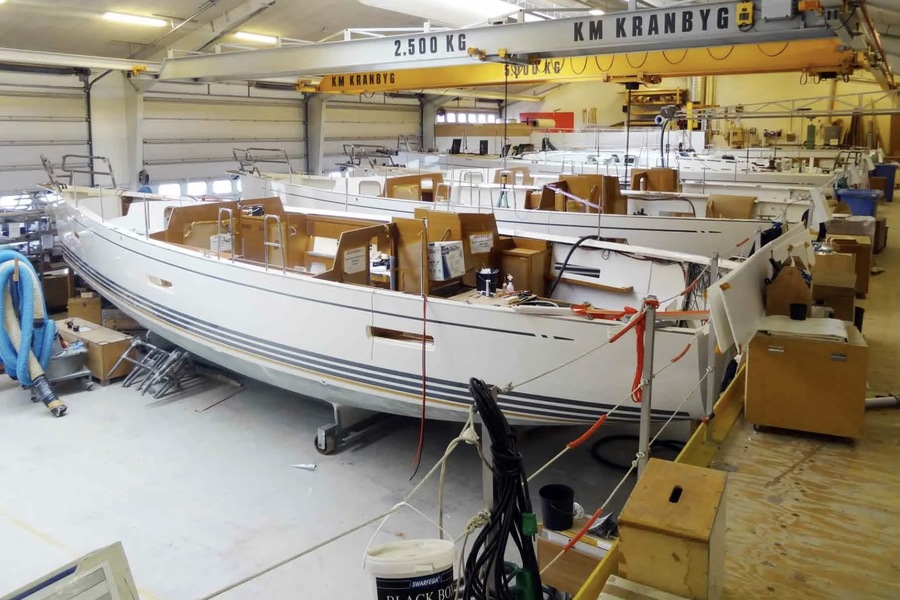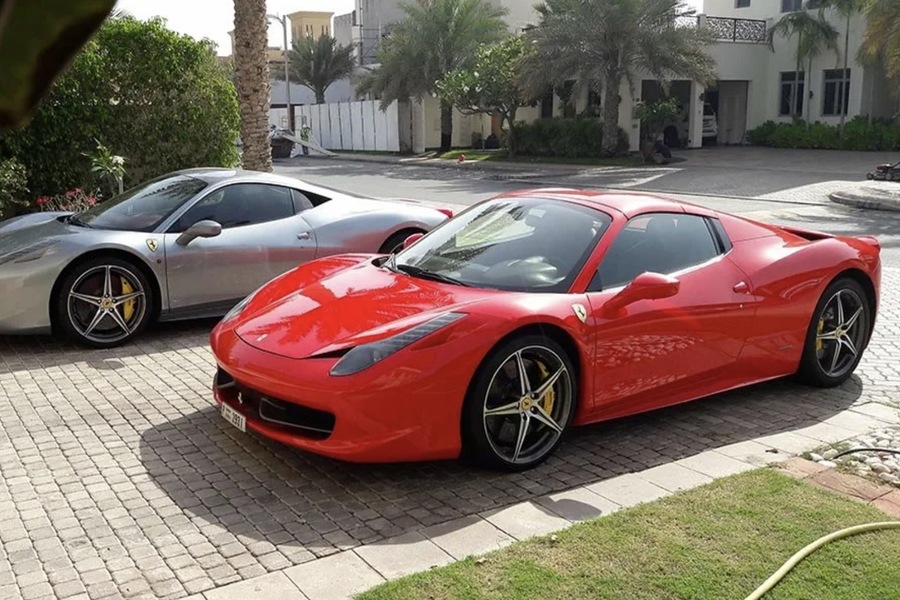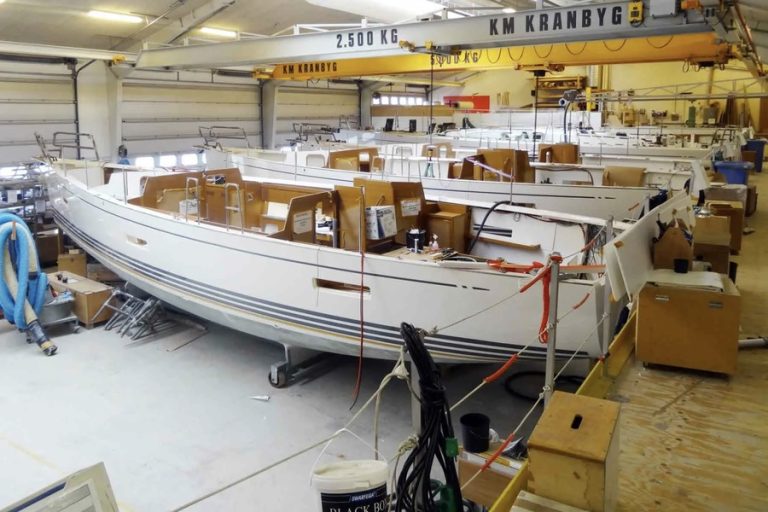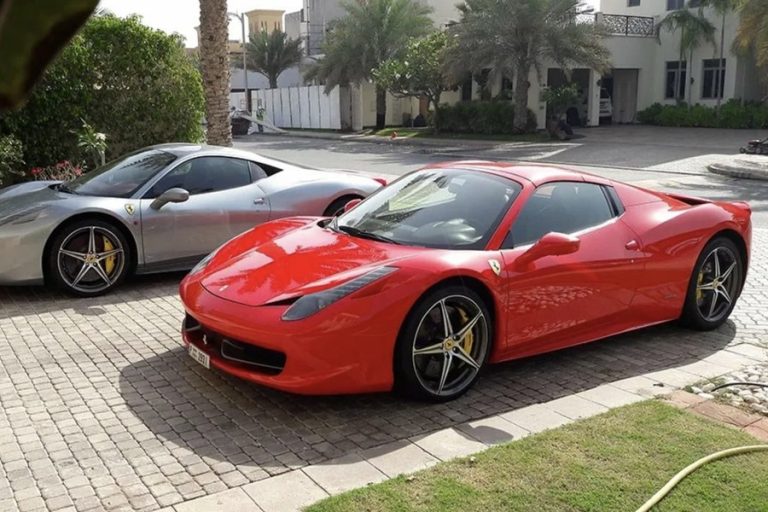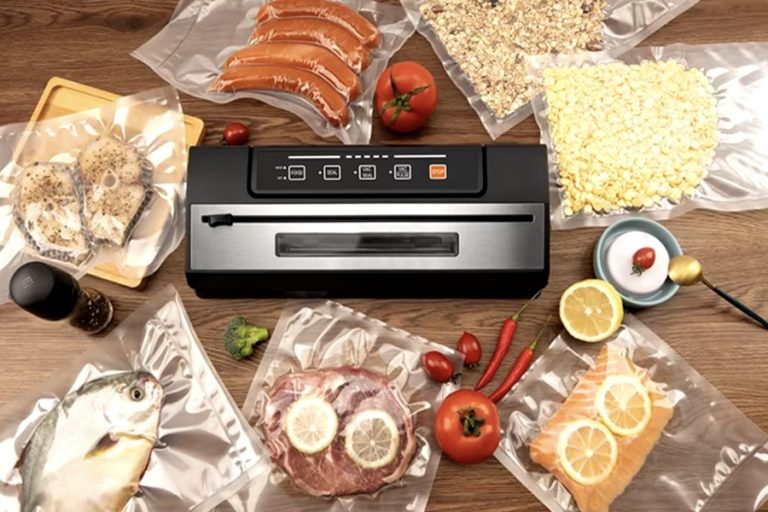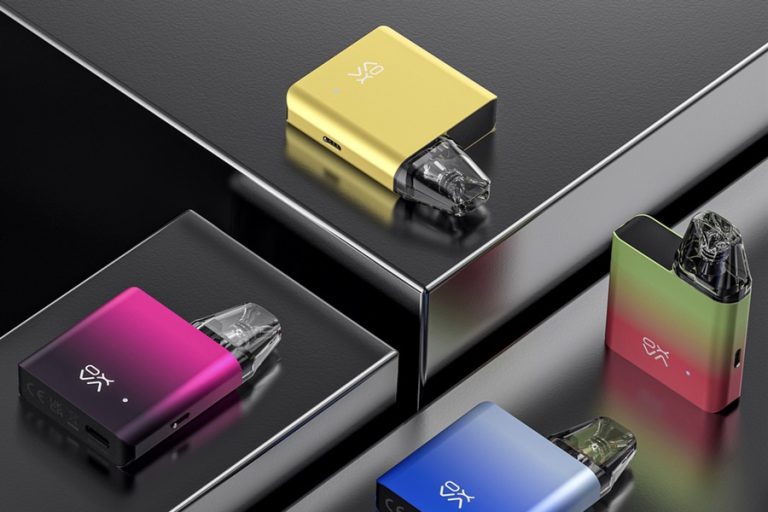Dubai’s luxury yacht manufacturing sector is booming, driven by its reputation as a global hub for high-net-worth individuals and maritime leisure enthusiasts. The seamless construction of these yachts demands precision welding machines, ensuring the durability, strength, and aesthetics of each vessel. This article delves into the essential role welding machines play in yacht manufacturing in Dubai, focusing on the technical, industrial, and regulatory aspects of this specialized process.
Growth of the Yacht Manufacturing Industry in Dubai
Dubai has established itself as a global destination for luxury yachting, with growing investments in manufacturing facilities and marina infrastructure. The UAE’s favorable tax policies and world-class shipbuilding hubs have attracted international orders for custom-built yachts. According to the UAE Maritime Industry Report, the country hosts over 20 marinas and more than 1,500 luxury yachts annually. As demand rises, manufacturers are adopting advanced welding technologies to meet international standards for both safety and aesthetics. Welding machines are indispensable tools in building yachts that meet these expectations, ensuring that components remain intact in the most challenging marine environments.
Why Welding is Crucial in Yacht Manufacturing
Welding plays a fundamental role in yacht production due to the materials involved and the strength requirements. Yachts are typically built from stainless steel, aluminum, and carbon fiber, which require specialized welding techniques to achieve proper fusion without compromising material properties. Poor welding practices could lead to weakened joints, which is unacceptable in marine engineering. With yachts facing constant exposure to water and extreme weather, the welding process ensures that the hull, decks, and structural frames remain robust and resistant to corrosion.
In Dubai, where yacht buyers demand bespoke designs, welding machines are essential for producing seamless joints and intricate customizations, from hull shapes to railings and bulkheads.
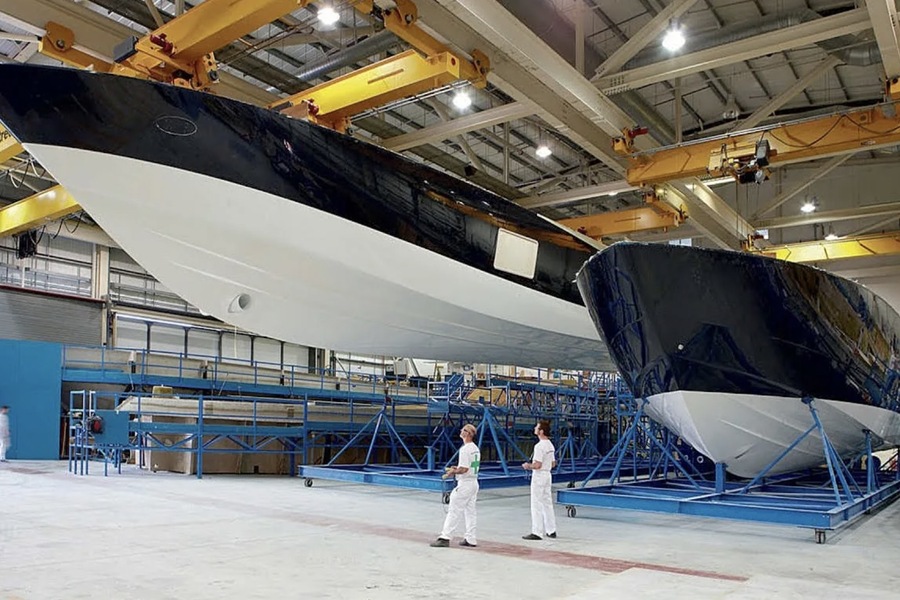
Types of Welding Machines Used in Yacht Manufacturing
The welding machines deployed in yacht construction depend on the material and section of the yacht being worked on. The three most common types include:
TIG Welding Machines
These machines are ideal for welding thin sections of stainless steel and aluminum, commonly used in yacht hulls and fittings. TIG welding offers precise control, reducing the risk of warping and ensuring a smooth finish, which is critical in luxury yacht construction.
MIG Welding Machines
MIG welding is frequently used for welding bulkheads and structural parts where efficiency and strength are required. It provides a fast process and produces high-strength welds, making it suitable for large sections of the yacht.
Robotic Welding Machines
Automation is becoming more prevalent in yacht manufacturing. Robotic welding machines provide consistency and speed for repetitive tasks, such as fabricating support structures and railings. These machines also minimize human error, ensuring that all components meet the rigorous standards required in maritime engineering.
Addressing Corrosion Through Specialized Welding Techniques
Corrosion is a major concern in the marine environment, especially in the salty waters of the Arabian Gulf. Yacht manufacturers in Dubai rely on advanced welding techniques and equipment to prevent corrosion, including inert gas welding to shield the welded joints from exposure to atmospheric moisture.
Additionally, aluminum welding is gaining popularity due to aluminum’s lightweight and corrosion-resistant properties. However, welding aluminum requires meticulous heat management to prevent cracking. The welding machines used must be equipped with precise temperature controls to avoid defects, ensuring that the final product is suitable for prolonged marine exposure.
Ensuring Precision and Strength with High-Quality Welding Machines
Precision is a priority in luxury yacht manufacturing, where each component must fit perfectly to maintain the yacht’s structural integrity and performance. Welding machines equipped with advanced control systems allow operators to set exact heat levels, wire speeds, and gas flows, ensuring flawless welds.
With Dubai’s yacht manufacturers catering to discerning clients, welding machines play a pivotal role in achieving smooth and visually appealing finishes. This is especially crucial for areas such as hull seams and handrails, which are highly visible to customers. Moreover, strong welds reduce the risk of structural failure, enhancing the yacht’s safety and longevity.
Compliance with International and Local Regulations
The yacht manufacturing industry in Dubai must adhere to both local maritime standards and international certification bodies such as the American Bureau of Shipping (ABS) and Lloyd’s Register. Welding machines must deliver precision and reliability to meet these stringent requirements.
Local manufacturers also comply with the UAE’s maritime safety regulations, which require vessels to undergo rigorous inspections before being launched. Welding processes are closely monitored during these inspections, as any defects could lead to safety hazards. High-performance welding machines help meet these regulatory benchmarks, ensuring the yachts meet operational and safety standards required for both local waters and international voyages.
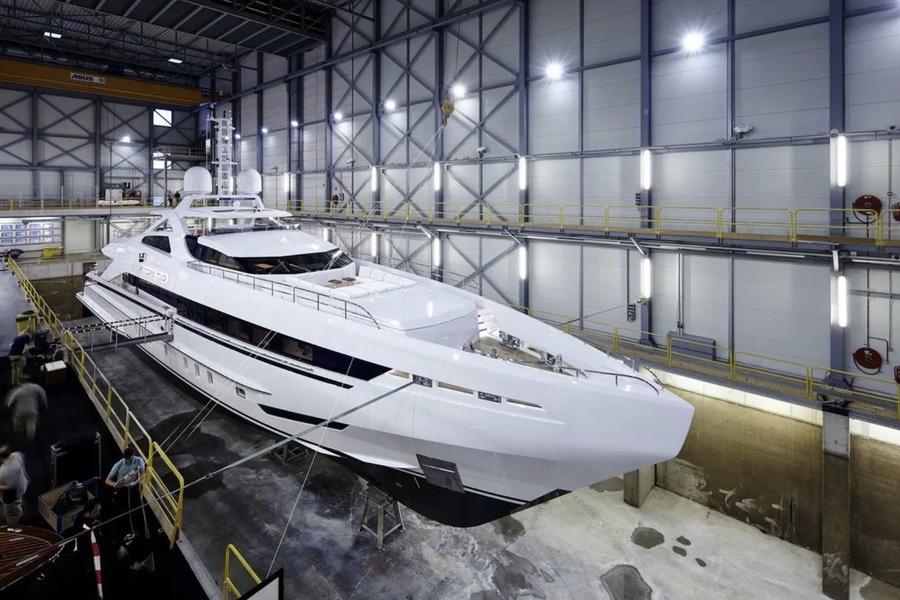
How Automation is Transforming Yacht Manufacturing
Dubai’s manufacturing sector is increasingly integrating automation to improve efficiency, and the yacht industry is no exception. Robotic welding machines, in particular, have transformed production lines by speeding up welding tasks without compromising on quality.
Robotic systems are programmed to weld complex components with precision, reducing labor costs and minimizing production delays. These machines are also capable of welding in hard-to-reach areas, where human welders might struggle. Automation ensures consistency across the manufacturing process, enabling manufacturers to meet tight delivery schedules while maintaining high standards.
Challenges of Welding in Dubai’s Climate
Welding in Dubai presents unique challenges due to the hot and humid climate, which can affect welding quality if not managed properly. High temperatures can lead to metal expansion, while humidity can increase the risk of weld contamination. Yacht manufacturers mitigate these challenges by operating in climate-controlled facilities and using advanced welding machines with precise thermal regulation.
In addition, Middle East Fuji Industrial Solutions plays a crucial role in providing high-performance welding equipment to local manufacturers, ensuring that machines operate efficiently even under extreme environmental conditions. With reliable machines, manufacturers can maintain production schedules and meet the high expectations of their clientele.
Economic Impact of the Yacht Manufacturing Industry
Dubai’s yacht industry contributes significantly to the local economy, generating employment opportunities and boosting related sectors such as marine tourism, maintenance services, and marinas. With the UAE aiming to expand its maritime sector as part of the Dubai Industrial Strategy 2030, luxury yacht manufacturing is expected to grow further.
As manufacturers invest in new facilities and welding technologies, the demand for skilled welders and operators trained in advanced welding techniques is increasing. This growth has led to partnerships between manufacturers and technical institutes in Dubai, focusing on building a skilled workforce to support the maritime industry.
Future Trends: Sustainability and Lightweight Materials
Sustainability is becoming a major focus in the yacht manufacturing industry. As Dubai aligns itself with global green initiatives, manufacturers are exploring the use of eco-friendly materials and energy-efficient production methods. Welding machines designed for low-energy consumption are increasingly preferred, helping manufacturers reduce their carbon footprint.
The use of lightweight materials such as aluminum and composites is also rising, as these materials improve fuel efficiency. Welding machines that can handle these modern materials without compromising strength will play an integral role in future yacht designs, ensuring that the vessels remain both functional and environmentally responsible.
Conclusion
Welding machines are essential to the growth and success of Dubai’s luxury yacht manufacturing sector. These machines enable precise construction, ensuring that the yachts meet the highest standards for strength, aesthetics, and safety. As the industry grows, driven by international demand and local investments, advanced welding technologies will remain at the forefront of yacht production.
With Dubai’s emphasis on innovation and sustainability, manufacturers will continue to adopt cutting-edge welding practices to stay competitive in the global market. Middle East Fuji Industrial Solutions plays a key role in supplying high-quality welding equipment, supporting manufacturers in meeting the technical and environmental challenges of yacht production in the UAE’s demanding climate. As Dubai’s yacht industry expands, welding machines will remain central to crafting the luxury vessels that symbolize the city’s maritime prowess.

Skier, traveler, music blogger, hand letterer and HTML & CSS lover. Performing at the sweet spot between art and purpose to craft delightful brand experiences. German award-winning designer raised in Austria & currently living in New York City.
